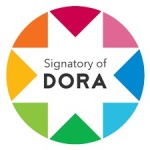The impact of organizational learning on competitive advantage Case Study of “Algerie Telecom”of Laghouat
Abstract
The aim of this study is to know the impact of organizational learning on competitive advantage at three levels: individual level learning, group level learning and organizational level learning By conducting a study of a sample of Algeria Telecom’s employees, and through questionnaires; the results showed a positive significant relationship between all levels of learning and the competitive advantage. When using the stepwise regression, a positive significant impact had been found between individual level learning, organizational level learning as predictors and competitive advantage on one hand; and rejecting the impact of group level learning on the other hand. Some conclusions and recommendations were suggested.
Downloads
References
فرحاتي، لويزة.(2016). دور رأس المال الفكري في تحقيق الميزة التنافسية للمؤسسات الاقتصادية في ظل اقتصاد المعرفة: دراسة حالة شركة الاسمنت عين توتة-باتنة، أطروحة دكتوراه، جامعة محمد خيضر بسكرة: جامعة بسكرة.
FARHATI, L. (2016). The Role of Intellectual Capital in Achieving the Competitive Advantage of Economic organizations under the Knowledge Economy: A Case Study of cement Company Ain Touta-Batna, Doctorat thesis, University of Mohamed Khider Biskra: University of Biskra.
Azizi, B. (2017). The Study of Relationship between Organizational Learning and Organizational Performance, RevistaAdministraçãoEmDiálogo, 19(1), p.166.
Bappuji, H. & Crossan, M. (2003, May, june, 30-2). From Raising Questions To Providing Answers: Reviewing Organizational Learning Research, Paper presented at 5th International Conference: Organizational Learning and Knowledge, Lancaster University, pp. 397-417.
Bontis, N., Crossan, M. & Hulland, J. (2002). Managing an Organizational Learning System by Aligning Stocks and Flows, Journal of Management Studies, 39 (4), pp. 69-437.
Edmondson, A. & Moingeon, B.(1996). Organizational learning and Competitive Advantage, London. Thousand Oaks. New Delhi : SAGE Publications, p.17.
Gilaninia, Sh., Ganjinia, H. & Karimi, K.(2013). The Relationship between Organizational Learning and Competitive Strategies andits Impact on Performance of Business and Customer”, Arabian Journal of Business and Management Review, 1 (3), p53.
Huber, G. (1991). Organizational Learning: The Contributing Process and the Literature, Organization Science, 2 (1), pp. 88–115.
Kamya, T., MpeeraNtayi, J. &Ahiauzu, A. (2011). Organizational Learning and Competitive Advantage: Testing For The Interacting Influence of Knowledge Management and Innovation, Int. J. Innovation and Learning, 10(4), pp. 376-377-401.
kocoglu, I., Imamoglu, S., & Ince, H.(2011). The Relationship Between Organizational Learning and Firm Performance: The Mediating Roles Of Innovation And Tqm, Journal Of Global Strategic Management, 5(1), P.73.
Lei, H., Ba Le, Ph. & Nguyen, H. (2017). How Collaborative Culture Supports for Competitive Advantage: the Mediating Role of Organizational Learning, International Journal Of Business Administration, 8(2), P.73.
Makabila, G., Iravo, M. & Waititugichuhi, A.( 2017). Does Organizational Learning Lead To Competitive Advantage?: An Evaluation Of State Corporations In Kenya, International Journal Of Scientific And Research Publications, 7(8), P.142.
Nunnally, J.C. (1978). Psychometric Theory, 2nd ed., New York: McGraw-Hill.
Ouma, S. Obonyo, P., &Yabs, J. (2017). Relationship between Organizational Learning and Performance of Insurance Firms in Kenya, International Journal of Scientific Research and Management (IJSRM), 5(7), p.6187.
Porter, M. (1998). Competitive Advantage: Creating and Sustaining Superior Performance -with a new introduction, New-York: The Free Press, pp. 12-14.
Saadat, V. & Saadat, Z., (2016, May, 2-3), Organizational Learning as a Key Role of Organizational Success, Paper presented at 3rdInternational Conference on New Challenges in Management and Organization: Organization and Leadership, Dubai: UAE, pp.221-222.
Sekaran, U. &Bougie, R. (2016). Research Methods for Business: A Skill-Building Approach, 7e edition, West Sussex, UK:John Wiley & Sons Ltd.
Tippins, J. &Sohi, R.S. (2003). IT Competency and Firm Performance: Is Organizational Learning a Missing Link?, Strategic Management Journal, 24, pp. 745-61.
Weihong, X.,Caitao, S.Dan, Ye.,(2008), “A Study on the Relationships between Organizational Culture, Organizational Learning, Technological Innovation and Sustainable Competitive Advantage”, International Conference on Computer Science and Software Engineering , Dubai: AUE[PDF]. Retrieved from: https://ieeexplore.ieee.org (Consulted on: 16/01/2019).
Wen-Cheng, W., Chein-Hung, L., & Ying-Chien, Ch.(2011). Types of Competitive Advantage and Analysis, International Journal of Business and Management, 6 (5), p.100.
Yang, B., Watkins, E. & Marsick, J. (2004). The Construct of the Learning Organization: Dimensions, Measurement, and Validation, Human Resources Development Quarterly, 15 (1), pp. 31-55.

This work is licensed under a Creative Commons Attribution-NonCommercial 4.0 International License.















